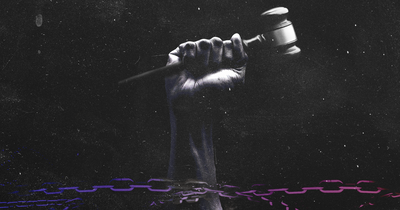
Juneteenth 2021: The holiday is over, but the work continues
Making Juneteenth a federal holiday is a step forward, but the real work lies in making practical changes, like taking action to reverse the long-term systemic methods of excluding people of color from our democracy.

The History of Juneteeth
In celebrating Juneteenth, we are reminded of how far we have come and how far we must go.
Juneteenth is both a celebration of Black liberation in the U.S. and an acknowledgement that freedom came far too late for far too many in the American South. White Southern officials’ defiance caused more than 2 years of continued bondage for enslaved people after the Emancipation Proclamation in 1863. This holiday, which marks Major General Granger’s arrival in Galveston Texas in 1865, signifies for us both the boon that is Black American freedom and the bane that is the unchanging stance of white supremacists leading the South. In celebrating Juneteenth, we are reminded of how far we have come and how far we must go.
We have progressed significantly as a nation since 1865, but the work of Black liberation has yet to be fully accomplished. This manifests in numerous ways, including in the pillars of our political processes. Remnants of Jim Crow structures suppress our voices, restrict our political mobility, and ultimately, limit our agency. The filibuster is one such relic that persists in obstructing the actualization of Black freedom and democracy. It was employed against the Civil Rights Acts of 1957 and 1964 and, in keeping with its tradition of delaying national progress, the filibuster now stands in the way of the For the People Act, John Lewis Voting Rights Advancement Act, and D.C. Statehood, among other prospective policies. With the filibuster intact, just one opposing vote in the Senate has the power to kill or delay these policies—policies that would otherwise advance into law via a simple majority vote and have the potential to put power in the hands of Black Americans.
For The People Act and D.C. Statehood
With these 3 bills, America can advance the liberties of Black and brown people by facilitating participation in our democracy.
Making Juneteenth a federal holiday is a step forward, but the real work lies in making practical changes, like taking action to reverse the long-term systemic methods of excluding people of color from our democracy. For example, by implementing automatic voter registration, combating abusive voter purges, building a small-donor democracy, and much more, the For the People Act, also known as H.R.1, would establish an electoral system that works with people, not against them. It would create a set of national standards that advance racial equity in our democracy and actively address the history of specifically anti-Black and generally racist voter suppression tactics used to manipulate our election processes today. The John Lewis Voting Rights Advancement Act (H.R. 4) similarly provides protection against state and local voter suppression by preventing voting law changes that would further disenfranchise Black and brown people and improving access to polling places on Indian reservations. Additionally, H.R. 51 would make Washington D.C.—a 63 percent Black and brown city—the 51st state, and would provide us voting representation in Congress and leave in the past the racist history of denying D.C. residents a voice. With these 3 bills, America can advance the liberties of Black and brown people by facilitating participation in our democracy. But to make them a reality, we must do away with the filibuster.
Continuing the Fight for Black Liberation
We celebrate Juneteenth to commemorate the milestones that Black people have accomplished in the U.S., and we have an opportunity now to reach even greater heights.
Maintaining the Jim Crow filibuster entrenches the opinions and interests of a conservative white minority at the expense of everyone else, making bipartisanship a near impossibility. Discarding it would let democracy function in the way it ought to. Looking through the lens of Black history, we see that the filibuster continues to be an enemy of progress. Juneteenth and the work of Black organizers today fuel our faith that a better tomorrow is possible. The fight for Black liberation will continue in the hands of the Movement for Black Lives, Black Futures Lab, and many more groups and organizations that are shaping a brighter future for us all. We celebrate Juneteenth to commemorate the milestones that Black people have accomplished in the U.S., and we have an opportunity now to reach even greater heights. With one less obstacle in our way, we will be able to realize freedoms that generations of us have been fighting for.

